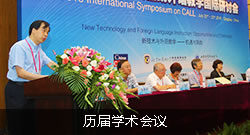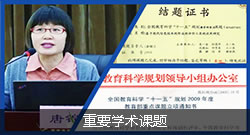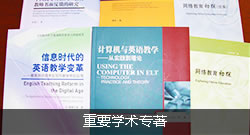Ursula Stickler
This one-day workshop will provide an opportunity for a maximum of 50 participants to try out online tools that can support the learning and teaching of languages in different context.
Goals:
- Developing practitioners’ skills in the use of online elements in language teaching (face-to-face, blended and fully online courses).
- Raising practitioners’ awareness of the need for self-training and continuing professional development in the area of integrating Information and Communication Technologies (ICTs) in their teaching practice.
Blended format:
The one-day face-to-face workshop will be embedded in pre-workshop online and offline preparation tasks and post-workshop online follow-up activities.
Before the workshop day participants will be invited to fill in an online survey to answer some questions on teaching practice, use of technology, and attitudes. To qualify for participation, applicants will need to enrol in a Moodle workspace to familiarise themselves with some of the workshop tasks, and prepare two activities to bring to the face-to-face workshop on 27 August 2017.
The face-to-face workshop will be interactive. After a short presentation given by the main organiser, Ursula Stickler, all participants will contribute and work in small groups to discuss best practice, try out a selection of online tools and deepen their understanding of integrating online elements into face-to-face language classes. An interactive online repository will be used to introduce pedagogically valuable tools for language teaching.
Follow-up tasks will consist of evaluation, participating in a follow-up survey, and contributing own activities and recommendations to the workspace.
Kan Qian 阚茜
This half a day workshop will introduce the concept of ‘Learning design’ - applying knowledge of pedagogy and learning analytics to the design of effective online courses. We will look at the design of one or two online courses to illustrate how the designing principles and learning analytics guided the design of learning activities and assessment. The participants will have the opportunity to design an online language course using the concept of learning design.
Goals:
- Raising practitioners’ awareness of the need for self-training and continuing professional development in the area of integrating pedagogy, Information and Communication Technologies (ICTs) in their teaching practices.
- Raising practitioners’ awareness of the need for reflecting on and researching into their teaching practices.
- Developing practitioners’ skills in the use of learning analytics and other available data to inform the design of learning activities.
Exploring Patterns of Blended Teaching and Concurrent Moral Emotions
— with Special Reference to Chinese Mixed-Ability Learners of English
顾曰国
What is it for a teacher to teach English to a class of over 100 students with mixed abilities whose proficiency levels ranging from ABC to intermediate? Does the provision of Web-based courseware and mobile APPs empower the teacher to do individualized learning or simply incur low morale and frustrations? This paper, based on some preliminary empirical studies carried out in the years 2014-16 in China, reports the theoretical part of the project, leaving the actual data analysis for another occasion.
For College English teaching in China, a package consisting of the print textbook, the Web-based courseware and the mobile APPs has become a standard provision of resources. The hypothesis motivating this standard provision is that the teacher is enabled to do blended teaching and that the student is enabled to do individualized learning at any time, and any where. The hypothesis turns out to be formulated on a highly idealized teaching/learning scenario. The status quo of actual practice is as remote as ever from the ideal. Emerged from our pilot studies are 9 patterns of blended teaching grouped in two major categories: (1) 4 patterns due to the varied instructional philosophies adopted by teachers; (2) 5 patterns, i.e., varied configurations showing the ways the teacher, the student, the print textbook, the courseware, and mobile APPs interact with one another.
There are current emotions that are concurrent with 9 patterns. The current emotions, being different from mood, and triggered by learning objects and instructional events in situ, are moral emotions experienced by both the teacher and the student. Moral emotions refer to emotions due to the cognitive/evaluative appraisal of emotional triggers coming from the teacher, the student, the print textbook, the courseware and mobile APPs. This aspect of investigation takes it as a fact that emotion affects the teacher in instruction, and the student in learning. Preliminary analysis of our video-based recording of emotions has shown that both the teacher and the student experience complex emotions of both positive and negative kinds.
依托信息技术的教师培养模式探索
A Blended-mode MA in ELT Program — Design, Implementation and Evaluation
唐锦兰
该讲座阐述了北京外国语大学英语教育同等学力研究生项目的设计过程。该项目由北京外国语大学网络教育学院与中国外语教育研究中心于2015年9月联合举办,采用混合教学模式,旨在为在职人员,尤其是英语教师提供英语教育方向的研究生学习课程。本研究采用调查问卷的形式,从学生对本项目的态度及体验经历、教学方法、教师、评估、互动及反馈,以及课程的技术支持等方面进行了调研和分析。共204人参与了问卷调查。主讲人将依据学生答卷情况分析调查结果,为改进该项目及中国在职英语教师教育提供启示。
This talk reports the design and efficacy of a blended-mode MA in English Language Education program at Beijing Foreign Studies University. The program was jointly launched by the School of Online Education, and the National Research Centre for Foreign Languages and Education, of Beijing Foreign Studies University since September 2015. It offered master-level education courses in English language education in a blended-mode to the in-service people, English teachers in particular. Research method in the form of a questionnaire was undertaken to gauge students’ attitudes toward and experiences with the program content, teaching methods and teachers, assessment, interaction and feedback, and technology. Altogether 204 students completed the survey, and the researcher will discuss the survey results drawing upon students’ responses and reflections. The study will shed light on how to improve the program and on discovering the most appropriate ways of in-service English teacher education in China.
网络教育环境下的外语任务型学习过程分析研究
吴立高
该专题讲座将讨论网络环境中的学生学习过程,以及研讨开放性和封闭性任务在学习过程中对学生产生的影响。
开放性和封闭性学习任务广泛地应用在网络语言课程中,为网络学习者提供语言学习和练习的机会。封闭性任务一般来说,有高度稳定的结构,有相对固定的答案,完成任务指令简洁,在网络环境下,深受网络课程设计者的喜爱,因为,这样的任务为学习者提供机会,让他们学习并练习语言技能和规则,之后,由计算机来评判练习结果,给出分数,并给出相对固定的反馈,是促进学生持续学习的有利工具。相比之下,开放性任务结构则不稳定,也没有一个固定的答案,主要考察学生的创造性思维,鼓励学生提供多样性的答案,这样的任务需要老师评判,并提供人性化的反馈。
该专题讲座持续四十分钟,首先会介绍北外网院语言课程的网络学习环境,重点介绍本人近两年所做的一项研究,研究北外网院英语专业学生学习学位课程“跨文化交际”的过程,本研究采取质性和量性相结合的方法,展示学生在学习网络课程中如何处理开放性和封闭性学习任务,以及任务对他们的学习产生的影响。量性方法采用问卷形式,发现学生对处理开放性和封闭性任务的认识和反思, 质性方法采用访谈形式,通过访谈8位同学,了解他们更加深入和细致的开放性和封闭性学习任务的处理策略。
该项研究表明学生在处理开放性任务过程中花费的时间大于封闭性任务,而且,在处理开放性学习任务时,同学们之间的交流增多。在处理封闭性学习任务时,同学们往往喜欢用技术工具、课本和字典解决学习中的困难,而在做开放性的学习任务时,同学之间的交流大大增加,互相之间的了解增多,他们之间的友谊增强。该结果也许对网络语言课程的设计者有一定的启示作用,在设计语言课程时,不同种类的学习任务会对学习者之间的交流有很大的影响,也会影响到他们的学习方式。
Task-based language learning process in the Chinese online learning context
This presentation will talk about student learning process in online courses in the Chinese online context and how students learn English with open and closed tasks in the online learning environment.
Closed and open tasks are both employed in online language learning courses. Closed tasks are highly structured and have specific goals. They are useful for students to practice certain language aspects and rules. Because closed tasks have a limited number of outcomes, they are popular in online environment, and widely used in self-assessment exercises. The computer can provide automated scores and fixed feedback to students after they have completed closed tasks in their language practice. In contrast, open tasks are loosely structured and students may have many different ways to answer them. These tasks provide a variety of language practice to students and encourage creativity and imagination in learners, which are important in language learning. But because of the complexity of the open tasks, tutors are required to grade them and provide relevant feedback.
The 40-min presentation will introduce the context of student language learning at Beiwaionline. Focusing on a particular group of students when they learn ‘Cross-Cultural Communication’, the researcher has conducted a study exploring how the open and closed tasks impact their language learning process with a mixed method which consists of a questionnaire and interviews. The questionnaire intends to find out student perception of how they process the open and the closed tasks. In the interviews, eight students are chosen to answer questions in depth to search for their particular strategies to cope with the open and closed tasks in the online language course.
The research has shown that students spend more time on the open tasks and have more communication with fellow students. Most students feel that they can complete closed tasks independently with technological tools, textbooks and dictionaries. When they deal with open tasks, they tend to ask for help from course mates and from the tutor. This result may have pedagogical implications for online course designers and online teachers. Before we choose task types for our students, we must understand that they are meant to promote some learning behaviours and benefit some language performance.
网络精品课程研发分享
李晨
时下,网络课程的门类和数量正在呈几何级数般增长。面对形形色色的课程,网络学习者也变得越来越挑剔。本讲基于主讲人自身研发课程的经验及国内主流网络课程平台的相关研究数据,探究网络精品课程应具备的特征。研究表明,网络课程研发人员如果仅从学术视角开发课程是不全面的,还须考虑到学习者的消费诉求不仅仅基于课程的学术性。本讲将探讨如何在保证课程学术性的同时对课程设计进行调整,让网络精品课程触及更大的受众面。
Improving online learning: Designer perceptions of useful and challenging characteristics
Online courses continue to grow in both academic and non-academic settings. In view of this, learners are increasingly fastidious about whether or not the courses can meet their demands. This talk draws on statistics gathered by both the presenter and third-party platforms on the characteristics of bestseller online courses. The analysis suggests that an overemphasis on the academic correctness of course content without considering the learners’ changing demand is conceptually flawed and practically risky. The conceptual flaws lie in failing to appreciate that the learners’ demand is shaped by more factors than academic concerns, which present immediate challenge for course marketing. However, it is the presenter’s view that courses can be modified in ways appropriate both to academic correctness and learners' interests.




